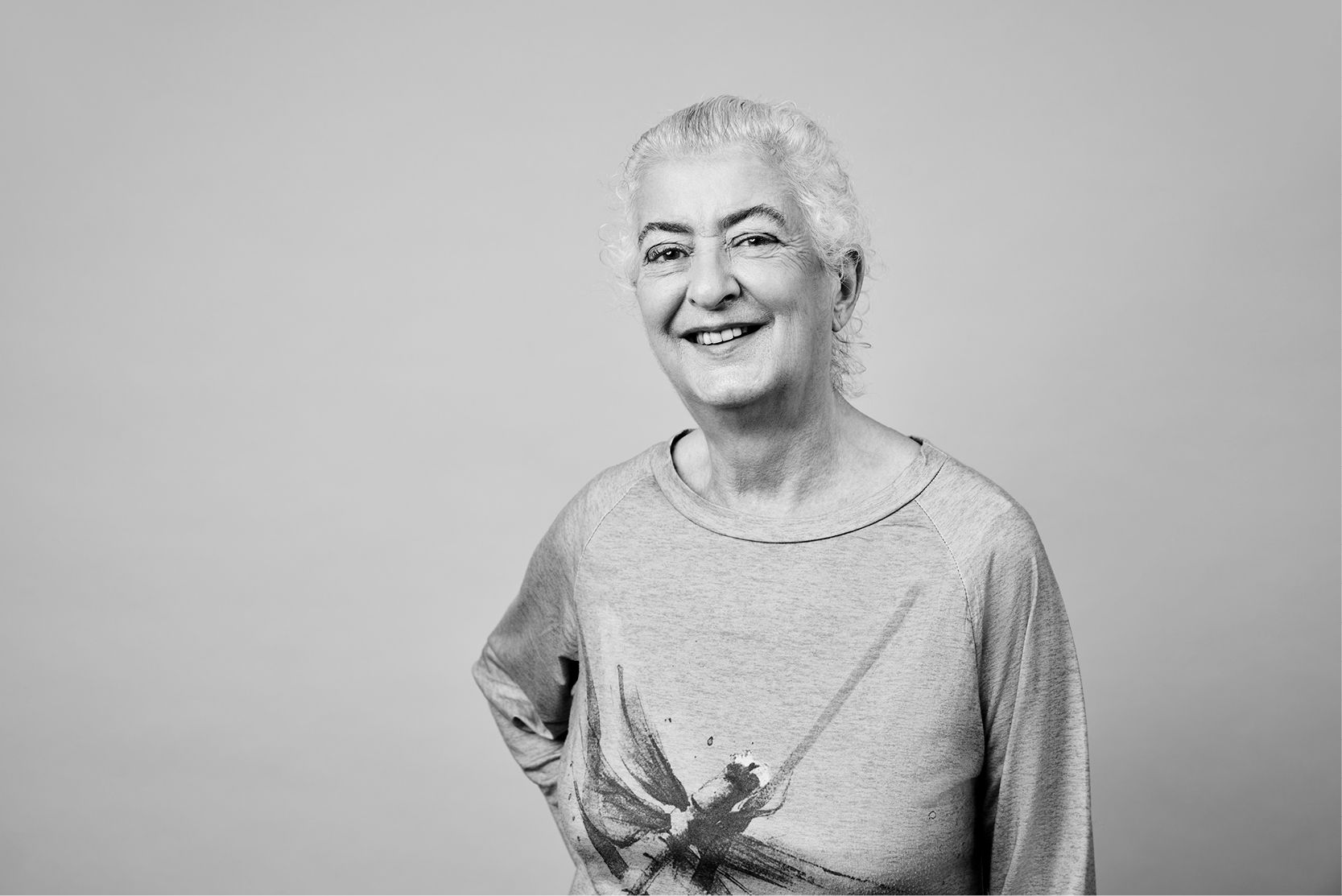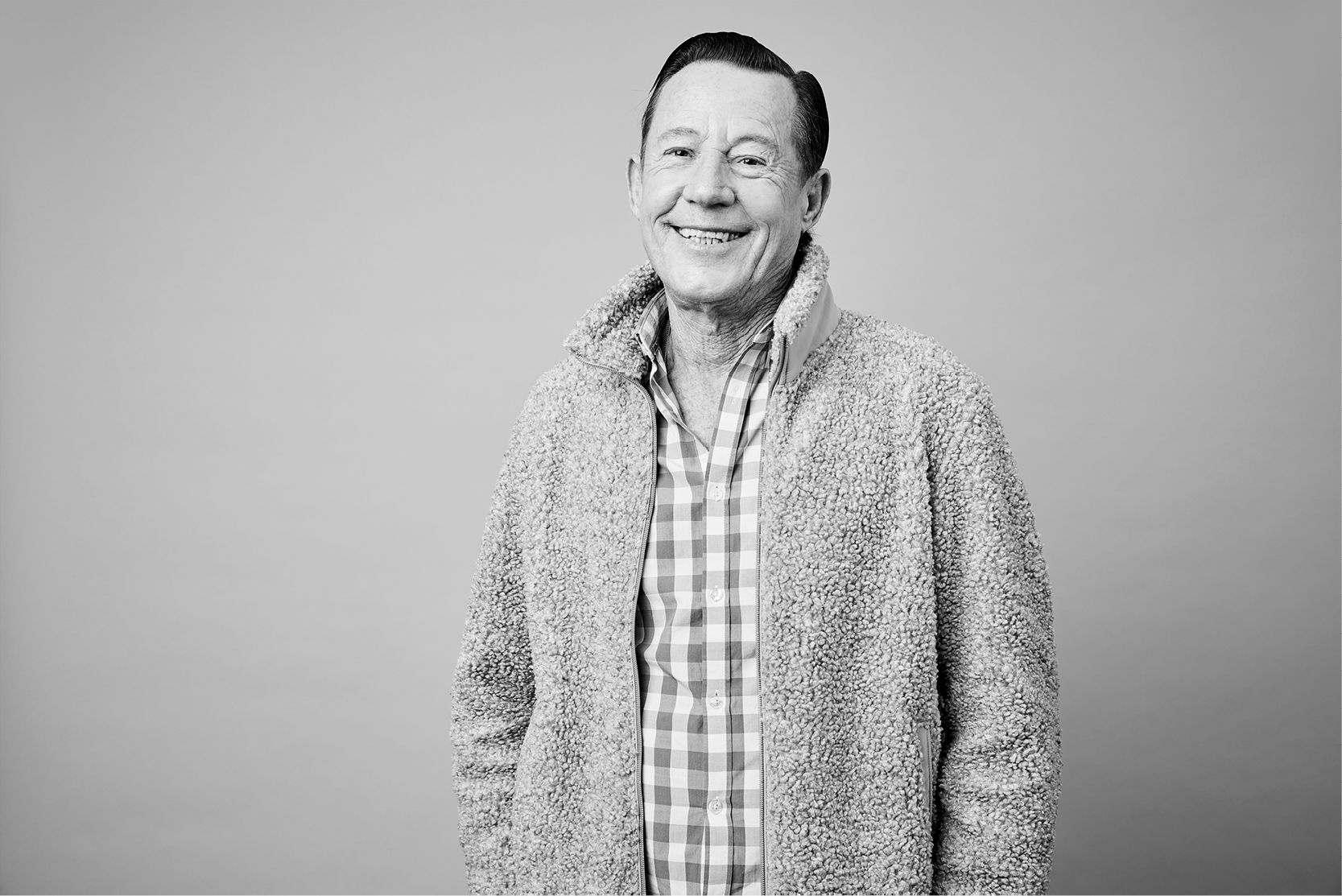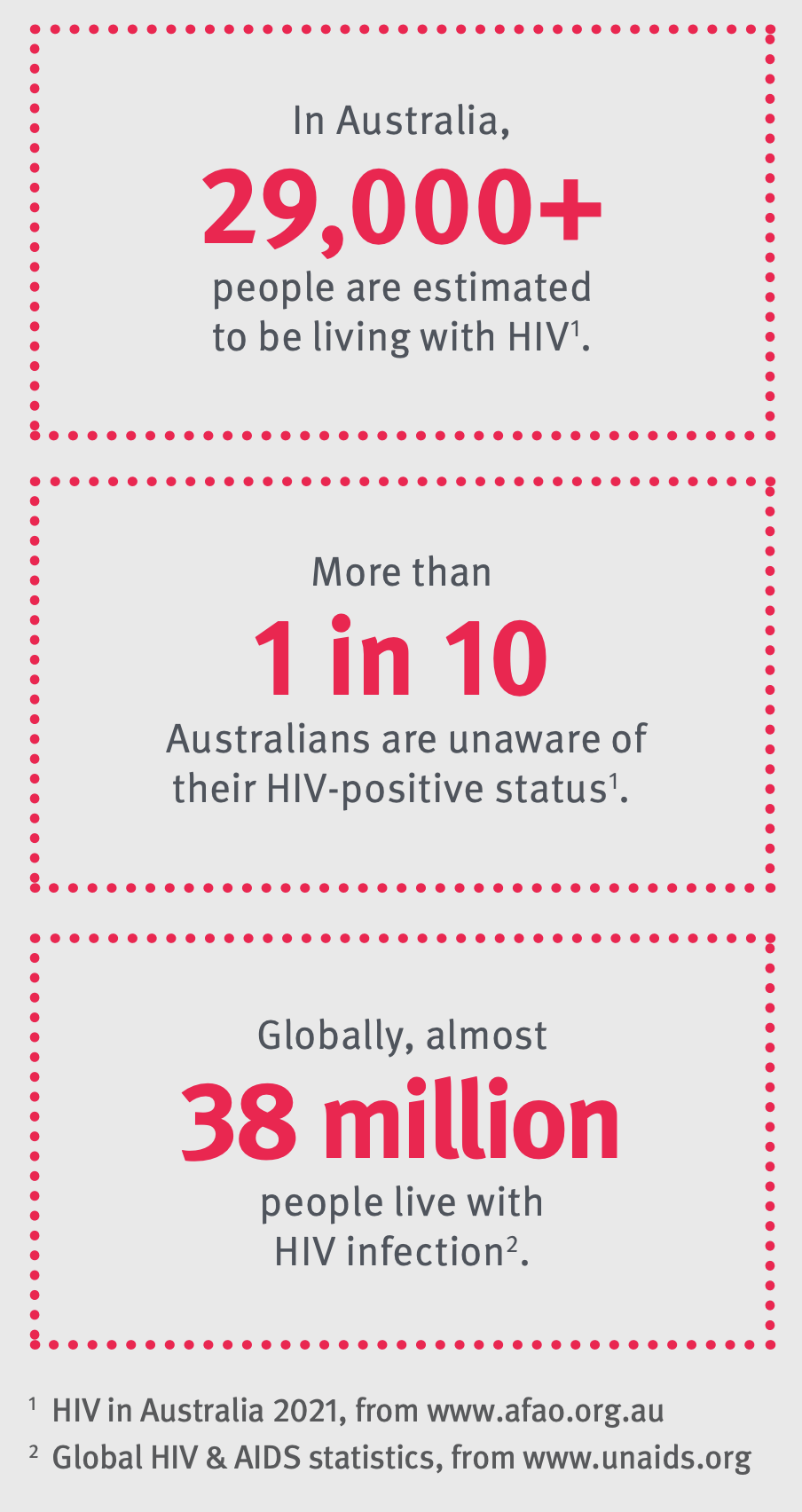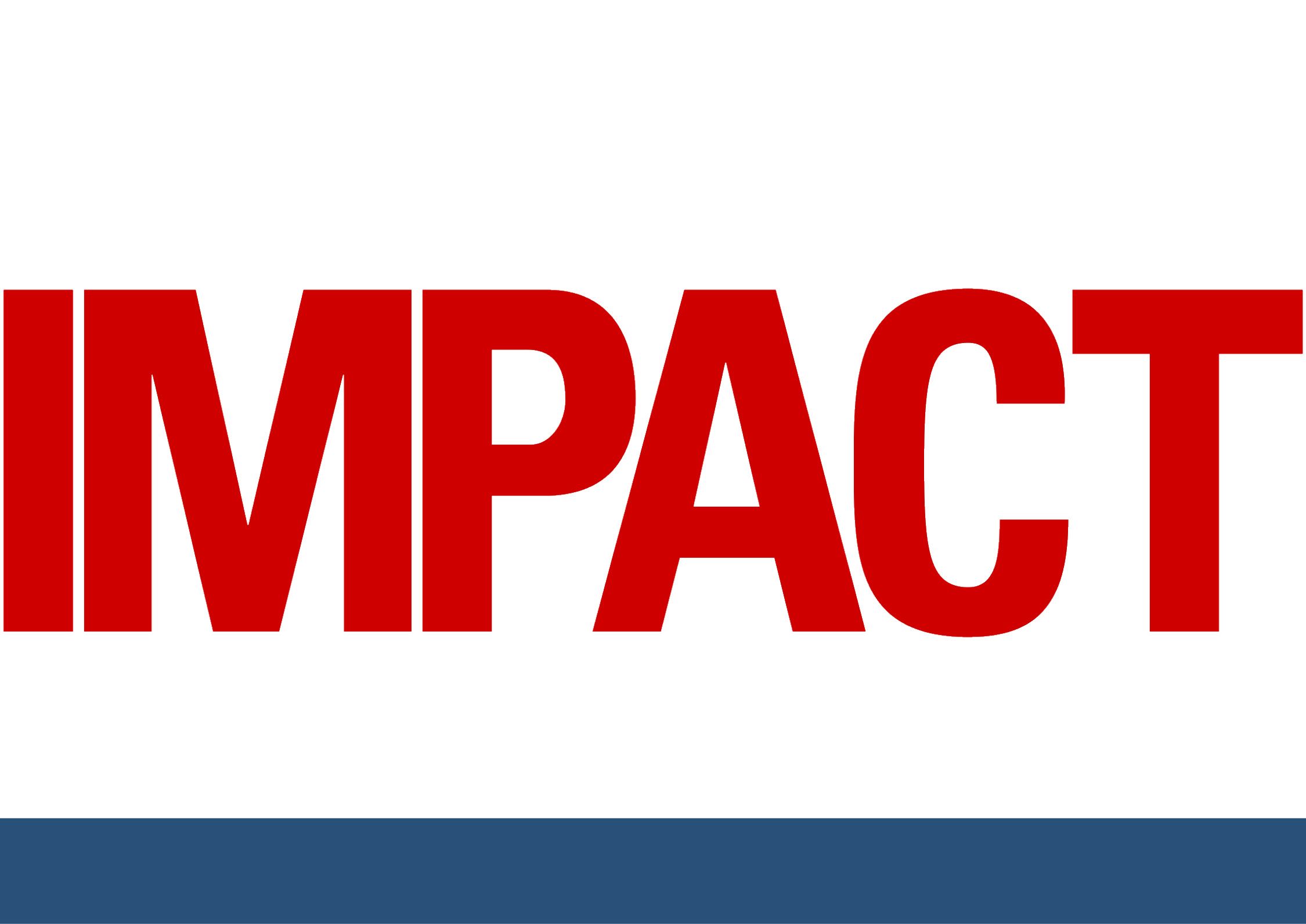Supporting
people living
with HIV to
age well

Ageing with HIV is different
Advances in science have changed the prognosis of being diagnosed HIV-positive into a chronic manageable condition. The focus now is helping people living with HIV to manage their health and wellbeing as they get older.
When Sam, 64, was diagnosed with HIV in the early 1980s, he never thought he would live to this age. The virus that caused rare infections and cancers had just been named human immunodeficiency virus (HIV). It would be a few more years for the first HIV treatment to be introduced.
Fast forward to 2021, Sam is among a cohort of people who have outlived their initial prognosis thanks to research that brought about effective treatments that have saved lives and enabled many to live longer.
A GROWING POPULATION
In Australia, the ageing HIV population is growing. Approximately half of people living with HIV (PLHIV) are now over 50 years.1 New challenges have since emerged for this cohort.
There is growing evidence that age-related conditions such as heart disease, osteoporosis and diabetes are more common among them, compared to those without the infection.2
Add to that the unique experiences of older PLHIV – ageism alongside HIV stigma, isolation due to the loss of loved ones and social connections, and the need to access services earlier than their HIV-negative peers. As they grow older, they require specialist and community support to address these needs and ensure their quality of life.
AIMING TO INFLUENCE HEALTH AND WELLBEING OUTCOMES
Ageing Well with HIV is an initiative involving Burnet Institute, Thorne Harbour Health, Living Positive Victoria and Alfred Health. Since 2018 the project has aimed to address the psychosocial and health needs of older PLHIV through an online platform that expands the reach and sustainability of existing programs that were delivered face-to-face.
That platform, Well Beyond 50, brings together health information, resources across social support for PLHIV, personal stories and access to a robust service directory listing Victorian providers. 3
“The website opens lots of possibilities,” Living Positive Victoria CEO, Richard Keane, said.
“I’m hoping that over the months and years ahead, we’ll be providing a whole range of information, not just on direct service delivery but on research into HIV and ageing and other really, really important issues about social connectedness and mental health.”
THE IMPORTANCE OF REAL PEOPLE’S EXPERIENCES
Burnet researcher Dean Cassano shared insights on the development of Well Beyond 50.
“The platform reflects the community needs. The focus group feedback showed concerns about navigating the health system because of their more complex care requirements and around isolation and loneliness as they aged,” he said. “People also wanted to hear positive stories from those in their community, stories about resilience and coping with difficult times.”
One of those stories is that of journalist and founder of Living Positive Victoria, David Menadue. “Ageing well with HIV for me, is paying attention to areas that possibly your average 50-year-old doesn’t think enough of,” he shared. “The chances we’re going to get co-morbidities is a little bit higher now, so we have to be on the ball about being preventive.”
“Ageing well with HIV, for me, is paying attention to areas that possibly your average 50-year-old doesn’t think enough of.”
| David Menadue, 68

Some of the preventive strategies David talks about are daily exercise such as weights to reduce muscle loss, activities such as crosswords for the brain, and socialising and mixing in peer support groups. These help in maintaining a positive outlook.
Such groups have also been helping Sam maintain a positive outlook.
“For people that have lost most of their friends, it’s a great way of getting back involved and meeting new people that are all in the same boat as you,” Sam, who has lived with HIV for 39 years, said.
“Community has given me self-purpose and a reason to keep on fighting and to keep on living.
1 Kirby Institute, HIV, viral hepatitis and sexually transmissible infections in Australia: Annual surveillance report 2017, Kirby Institute, UNSW, Sydney. 2017. 2 Woods R, ‘HIV and Ageing in Australia – The New Frontier’, National Association of People with HIV Australia, Melbourne. 2019. 3 The Well Beyond 50 platform was developed as a partnership between Burnet Institute, Living Positive Victoria, Thorne Harbour Health, and Alfred Health, and with collaboration from Bolton Clarke and Positive Women Victoria
| Leighton
A community member who was actively
involved in the Well Beyond 50 project.

ENDING THE HIV EPIDEMIC IS A REAL POSSIBILITY
Australia’s HIV management is regarded as among the best in the world. However, there is work to do if HIV is to be eliminated as a public health threat. Burnet’s research uses a multifaceted approach and focuses on four pillars towards eliminating HIV:
– Prevention and vaccines
– Testing
– Modelling and surveillance
– Treatment and quality of life.
OUR CURRENT RESEARCH INCLUDES:
• Identifying compounds that can lead to a novel class of drugs for use in treatment and prevention. This addresses the real threat that drug resistance and intolerance will eventually lead to exhaustion of antiretroviral drug options for treatment and prevention.
• Exploring the role of HIV self-testing including developing and implementing interventions to improve HIV self-testing coverage.
• Determining the direct anti-HIV mechanism of vaginal microbiota and their composition that can lead to strategies to treat and prevent genital inflammation which increases women’s susceptibility to HIV and adversely affects their reproductive health.

You're reading IMPACT magazine | Subscribe today

Make an Impact | Donate Today
Please donate today. Your donation will enable us to focus on safe birthing in the time of COVID-19 to improve health outcomes for mothers and babies in Papua New Guinea.
Contact Us
If you would like to discuss this edition with our team please contact Tracy Parish.
E: communications@burnet.edu.au
T: +61 3 9282 2111
Where possible people who appear in images included in this publication were photographed with their permission. There is no implication that these people have any infectious diseases.
Stay across the latest from Burnet Institute
Subscribe to IMPACT magazine today
Discover the IMPACT of Burnet’s medical research breakthroughs and public health projects in the Institute’s bi-annual magazine.
